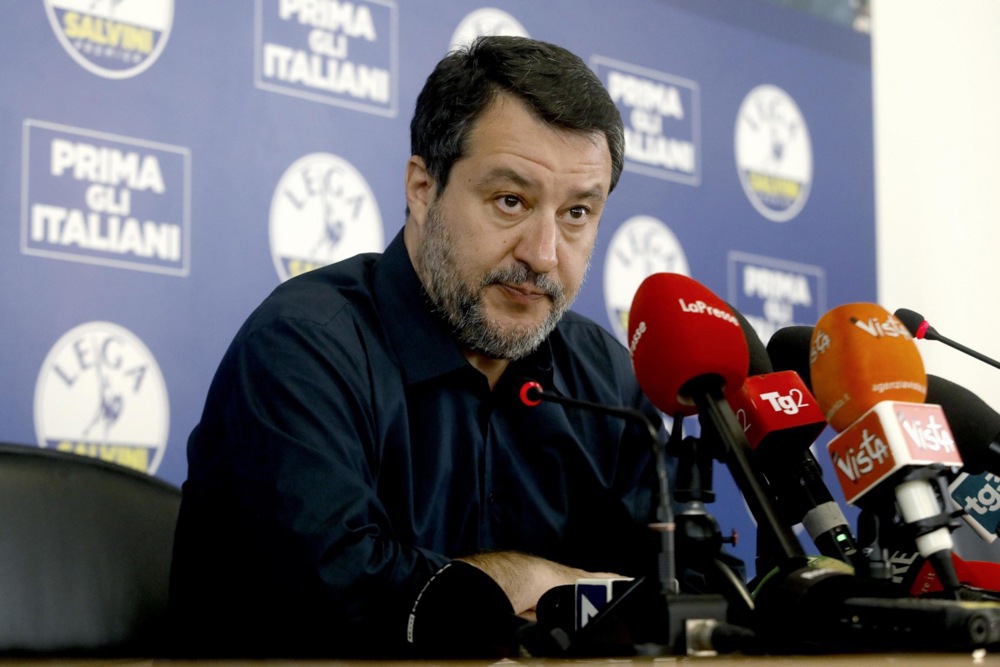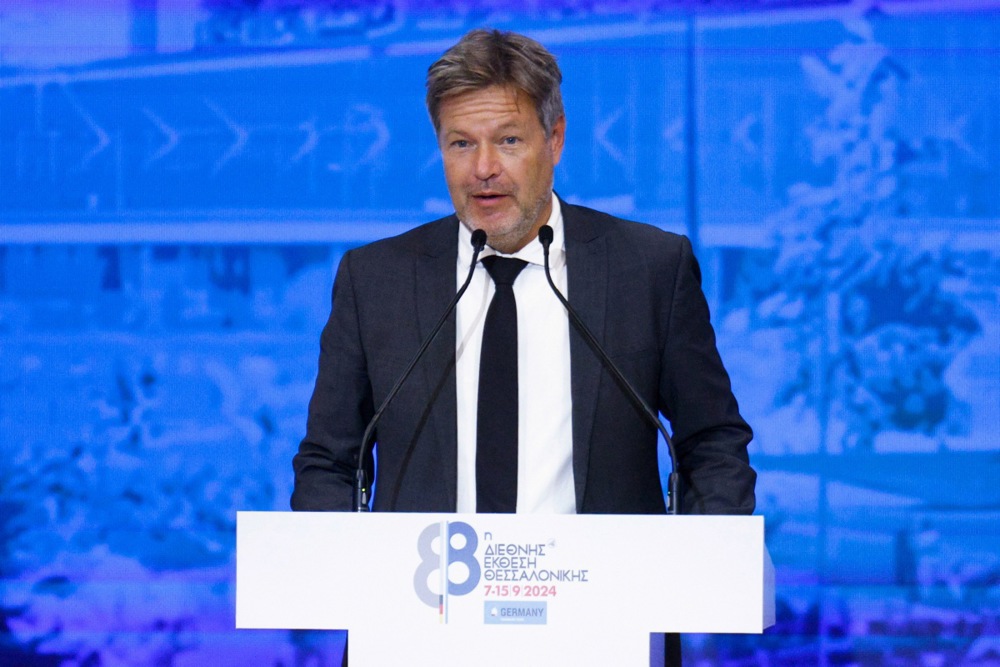The World Health Organisation (WHO) has launched a campaign demanding an overhaul of how Europe deals with the consumption of alcohol in a move that has been blasted by critics.
With its Redefine Alcohol campaign, unveiled on October 2, the WHO urged Europeans to examine critically their personal and societal ties to alcohol, and pushed for a rethinking of alcohol’s often pervasive influence in daily life, celebrations and traditions.
Among the critics of the WHO campaign is Dr Christopher Snowdon, head of Lifestyle Economics at the Institute of Economic Affairs, who told Brussels Signal he had strong disagreement with this argument, calling the WHO “an incompetent and corrupt organisation that constantly meddles in areas that are beyond its original remit”.
“Alcohol policy decisions are the responsibility of member states and they range from complete prohibition to relative laissez-faire. The WHO has become far too close to temperance organisations such as Movendi and its policy recommendations reflect the views of a clique of hardliners,” he said.
In its campaign, the WHO said its aim is to “raise awareness” of the health risks and “hidden dangers” associated with alcohol consumption.
Dr Gauden Galea, a strategic adviser for the WHO Regional Director for Europe, linked drinking alcohol with both negative physical effects and wider societal problems.
?? Join us NOW for the talk show ‘Redefining our understanding of alcohol in Europe!’ — the official launch of our Redefine Alcohol campaign!
? When? NOW
? Where? Right here: https://t.co/MZwM6kCPob pic.twitter.com/lLO2jh75lt— WHO/Europe (@WHO_Europe) October 2, 2024
“Alcohol consumption is a key contributor to violence, including sexual and gender-based violence, road injuries and other forms of harm that affect not only drinkers but their families and communities more widely,” he said.
Galea said people must be “empowered to make informed choices” and the WHO campaign shared information “encouraging individuals to rethink their habits and relationships with alcohol”.
Redefine Alcohol also called on policymakers and health authorities “to help bring about a broader cultural shift in how alcohol is viewed and regulated in society”.
“Individual choices are important but they are not enough,” said Galea. “In our region, alcohol is too cheap, too available and too heavily promoted.”
“A product that causes as much harm as alcohol should be more strictly regulated. We know what needs to be done – but we need decision-makers to prioritise public health.”
The communications campaign, co-funded by the European Union is part of the WHO/EU Evidence into Action Alcohol Project (EVID-ACTION), launched in 2022.
In a written response to the campaign to Brussels Signal, Ulrich Adam, director general of spiritsEUROPE, a trade group that represents the interests of producers of spirits drinks in the EU, challenged the WHO’s findings, accusing it of not being careful enough with its figures.
“Decades of evidence suggest that for most adults, the risks posed by responsible alcohol consumption are low, but it’s vital to avoid excess — and for some, the best choice may be not to drink at all. Raising awareness is essential to empower consumers to make educated choices,” he said.
“For that, campaigns need to inform—not instil fear or anxiety. Numbers need context. In Europe, we have seen a number of positive declining trends in recent years: heavy episodic drinking dropped 10.7 per cent (WHO, 2010-16), alcohol-related road fatalities fell by 37 per cent (European Transport Safety Council, 2011-21) and underage drinking hit its lowest level since 1995.
“The latest WHO Global Status report shows a 20 per cent reduction in alcohol-related mortality (2010-19). Finally, to avoid misunderstandings in the debate, it is important not to confuse the EU (27 member states) and the WHO-Europe Region (53 countries stretching from Lisbon to Vladivostok). The picture is not the same!”
As part of the campaign, the WHO published “powerful stories” of people who promoted quitting alcohol.
One detailed the tale of Yolanda, a Swedish poet and “trans-activists” who fights for so-called “queer spaces” free from harm due to alcohol.
On the morning of October 2, Lithuanian MEP Aurelijus Veryga, of the European Conservatives and Reformists (ECR) group held a debate in the European Parliament on the lesser-known links between alcohol and cancer.
According to the WHO, Europe has the highest proportion of drinkers and the highest intake of alcohol in the world.
It said the consumption of alcohol was “a preventable risk factor that can cause premature death and over 200 diseases including seven types of cancer, neuropsychiatric disorders, cardiovascular diseases, cirrhosis of the liver and several infectious diseases”.
The WHO claimed that alcohol caused almost 1 million deaths annually in Europe, ranging from foetal alcohol spectrum disorders (FASD) to it being responsible for one in every four deaths in the 20–24-year-old age group. It also connected alcohol with breast cancer.
Additionally, the body said alcohol consumption was “a key contributor to violence, including sexual and gender-based violence, road injuries and other forms of harm that affect not only drinkers but their families and communities more widely”.
5⃣To avoid misunderstandings in the debate, important not to confuse the EU (27 Member States) & the WHO-Europe Region (53 countries stretching from Lisbon to Vladivostok). The picture is not the same! #FactsNeedContext #GetTheWholeStory pic.twitter.com/5vB16gdFlC
— spiritsEUROPE (@spiritsEUROPE) September 30, 2024
Geert Van Lerberghe, general manager at Vinum Et Spiritus, the Belgian federation of the wine and spirits sector, told Brussels Signal his federation “exclusively promotes responsible alcohol consumption, as enjoyed by the vast majority and we seek recognition for the socio-economic value of the wine and spirits sector”.
“Based on published research on consumption patterns and behaviours, we know that wine and distilled beverages can be part of a balanced lifestyle when consumed in moderation and responsibly. Moderate alcohol consumption is often associated with celebratory moments, togetherness, and relaxation.”
Van Lerberghe stressed that alcohol consumption carried health risks and that consumers must be fully informed about this to make educated choices. He highlighted the industry’s responsibility and noted that it had taken initiatives such as the voluntary modification of educational slogans in alcohol advertisements, awareness campaigns and partnerships with retail and hospitality sectors to protect vulnerable consumers and train staff.
He said various governments and agencies in Belgium had developed a national alcohol plan, specifically targeting excessive consumption and that his federation strongly advocated for that.
Furthermore, he added that the federation was aiming to take initiatives to prevent minors from buying and consuming alcohol.
Could graphic warnings on alcohol packaging, similar to those on tobacco products, be introduced across Europe? https://t.co/xQ4yfRfwCK
— Brussels Signal (@brusselssignal) June 29, 2023





